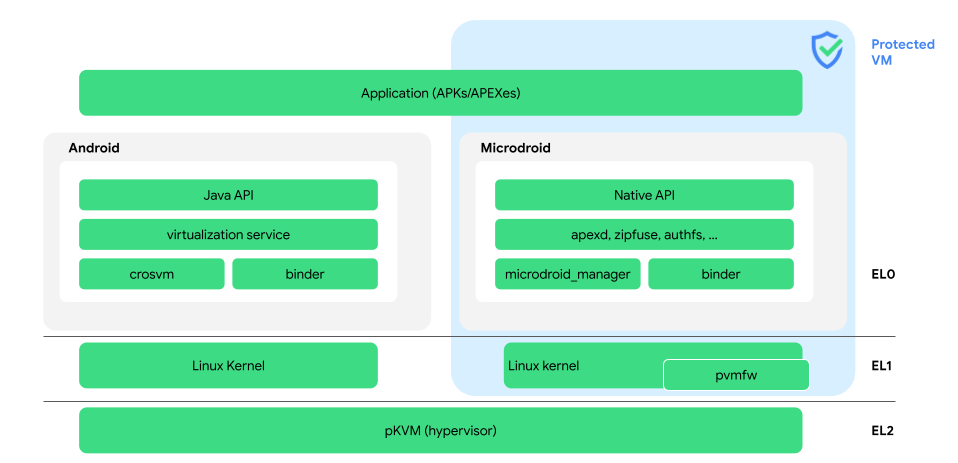Fuchsia is an open-source operating system developed by Google that’s designed to be simple and secure. The company previously released versions of Fuchsia that can run on Pixel-branded Chromebooks and Google Nest Hub smart home devices.

Fuchsia is based on a custom kernel called Zircon, which is derived from the Little Kernel operating system. According to Google, Zircon is “composed of a kernel and a small set of userspace services, drivers, and libraries necessary for core system functions such as booting.”
Now the latest news is that Google is working on “Microfuchsia”, a cut-down version of the Fuchsia operating system, to run it on Android devices inside a virtual machine. Microfuchsia is reportedly designed to run in a virtual machine on devices like Nest Hub. The latest development is different because it’s now happening on Android.
Microfuchsia could be used to run certain functions in an isolated environment securely
There have been speculations that Fuchsia OS will replace Android in the future, which seems unlikely at this point. The company is testing the OS out in new and interesting places. One of them is developing a cut-down version of it, that will run within Android devices in a virtual machine.
Google reportedly has ambitious plans to ship Fuchsia OS on smartphones, PCs, and smart home devices. The company eventually released Fuchsia with the first generation Nest Hub in 2021. The second-generation Nest Hub also included the OS. While the latest development with Fuchsia is not about replacing Android, it could result in significant changes in some core functionalities of Android going forward. According to Google, Microfuchsia is designed to be used in virtualization solutions. Nonetheless, Google will likely implement Microfuchsia in Android only if it adds value or improves the end-user experience.
Google introduced pKVM, a hypervisor for the Android Virtualization Framework (AVF), in Android 13 on select devices. The Android Virtualization Framework and pKVM are designed to run certain types of workloads in an isolated environment securely. Google could use its development around Fuchsia to improve the security of certain functions of Android devices.
(Via)
#Google #run #Microfuchsia #Virtual #Machine #Android #tasks #secure,
#Google #run #Microfuchsia #Virtual #Machine #Android #tasks #secure


